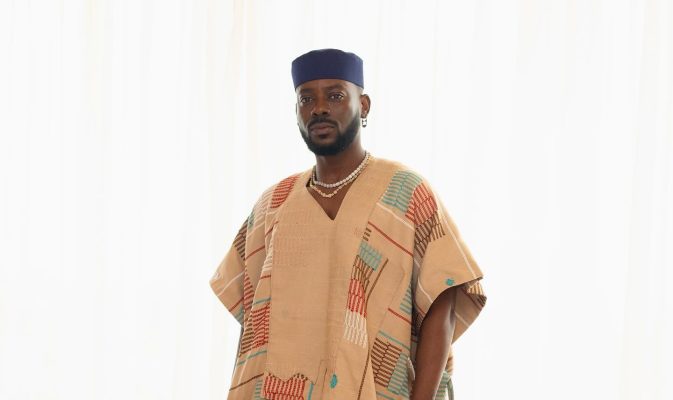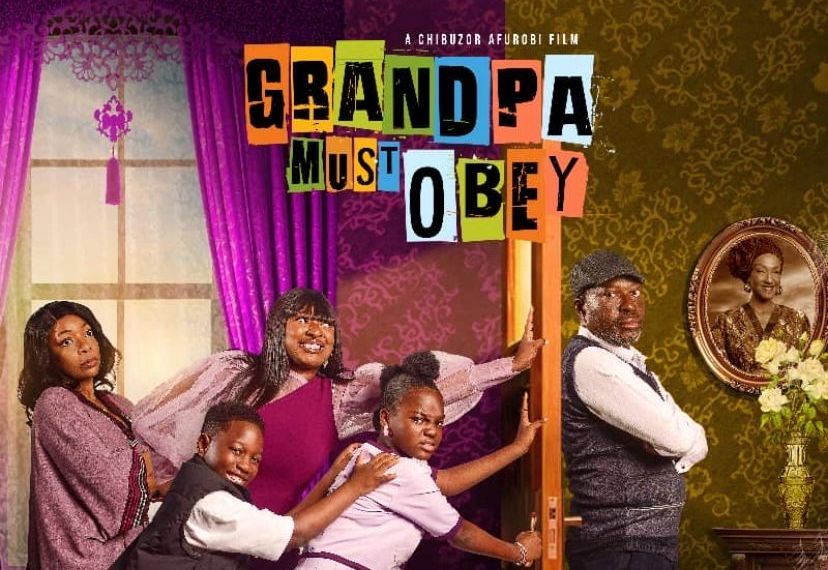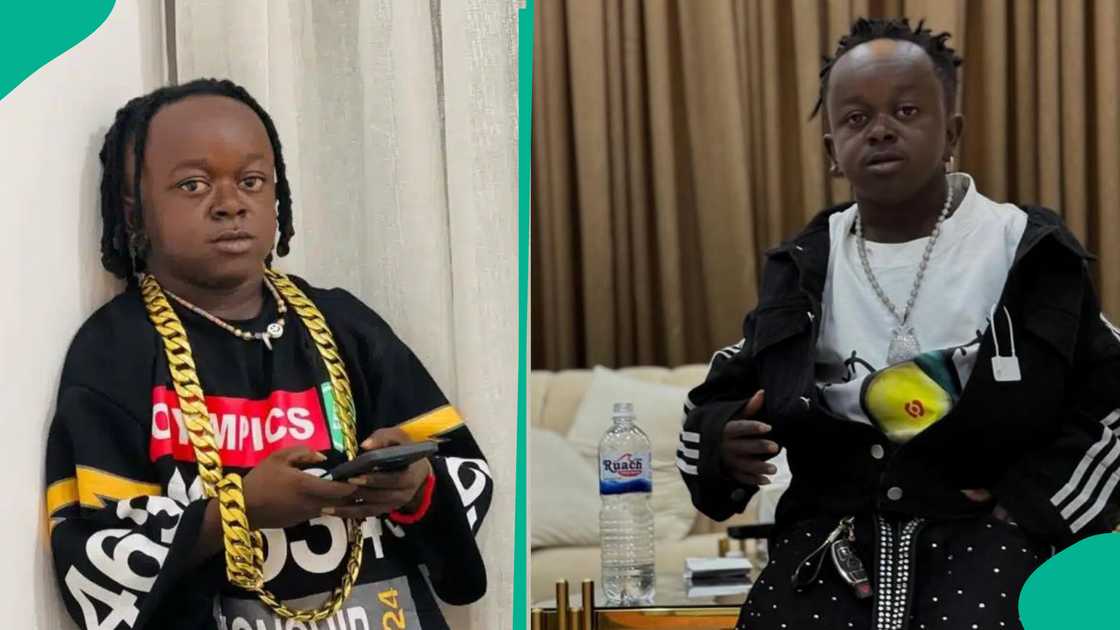The Nigerian music scene is renowned for its collaborative energy—a dynasty of artists joining forces, trading verses, and uniting diverse fanbases. But even as partnerships dominate the airwaves, certain musicians have boldly chosen a different path: presenting entire albums without a single guest, letting their individual voices stand unfiltered. This approach is stirring conversation across West Africa, highlighting questions about the value of pure artistry versus star-studded lineups.
Recently, Adekunle Kosoko—popularly known as Adekunle Gold—shed light on his own decision to downplay collaborations on his Fuji-inspired album during an interview with Cool FM. According to the Afropop star, the aim was simple: motivate listeners to focus on the creativity and sound itself, rather than just anticipate the next big feature. Adekunle Gold explained, “When I released my first album, I had only one feature, and it was one of my greatest works.” The underlying message is clear—perhaps it’s time to revisit the idea that an album’s impact isn’t always about how many celebrities you can fit on a track list, but about the quality and honesty of the music itself.
The Pull of Featureless Albums: Why Some Artists Go Solo
In an industry where collaborations often fuel popularity, visibility, and the promise of chart-topping hits, creating a “featureless” album is more than a creative gamble—it’s a statement. For many West African and global audiences, it’s refreshing to hear an unfiltered artistic vision, a project carried entirely by one voice. According to Lagos-based music analyst Tolu Abiodun, “Going solo pushes artists to dig deeper, to showcase range and storytelling skills. It’s a declaration of confidence, and fans respect that authenticity.” But this strategy is not without its critics; some skeptics argue that features help diversify sound and reach, especially in today’s crowded entertainment space.
Celebrated Nigerian and Global Albums Made Without Features
Throughout music history, a handful of albums—some from Nigeria and some international—have proven that going it alone can have striking results. Here’s a look at five projects that broke the mold, captivating audiences and thriving commercially without leaning on other stars:
-
Fireboy DML – Laughter, Tears & Goosebumps: Bursting onto the scene under the YBNL label, Fireboy DML made a daring entrance with his debut album, refusing to include any features. As Fireboy himself noted in interviews, he felt it was crucial for listeners to appreciate his music “without distractions.” This artistic risk paid off—the project produced anthems like “Jealous” and “Vibration,” quickly earning a spot as an Afrobeats staple and demonstrating that a newcomer could craft an album as a singular, cohesive story.
-
Brymo – Oṣó: Known for his emotive delivery and poetic lyricism, Brymo took creative boldness to new heights with ‘Oṣó,’ insisting that every song be a solo performance. The album, featuring tracks such as “Heya!” and “God Is in Your Mind,” pushed the boundaries of alternative music in Nigeria, blending folk, Yoruba rhythms, and philosophical themes. Nigerian music journalist Funmi Oyewole observed, “Brymo’s decision put him in direct conversation with his audience—no fillers, no compromise.”
-
Omah Lay – Boy Alone (Original): In a world obsessed with features, Omah Lay’s ‘Boy Alone’ arrived as a revelation: pure, vulnerable songwriting, and Omah Lay’s unique sonic palette, all without outside interference. The original version left listeners awash in his confessions—no supporting acts to dilute the message. Across Nigeria and Ghana, the album resonated deeply, especially among youth navigating their own emotions and identities.
-
J. Cole – 2014 Forest Hills Drive: Although an American project, J. Cole’s featureless album has inspired conversations among African artists and producers. ‘2014 Forest Hills Drive’ soared to critical acclaim, earning a Grammy nod while relying only on Cole’s narrative power and production. The project’s global success has often been cited in African music forums as evidence that solo efforts can achieve both art and commercial wins.
-
Taylor Swift – Speak Now: Breaking conventions even in the pop world, Taylor Swift wrote every track on ‘Speak Now’ without inviting any features. Released at age 20, the album’s success—topping charts worldwide and earning multi-platinum certification—reminded artists everywhere that, sometimes, raw songwriting and self-belief are unstoppable forces.
Why Go Featureless? Artistic Integrity, Authenticity, and Audience Connection
For many artists in Nigeria and West Africa, the choice to release an album without features is about more than ego. As Abuja-based entertainment writer Maryam Musa put it, “In an industry where trends pressure artists to collab with everyone, choosing to go solo can reclaim a sense of creative integrity.” Fans, especially younger listeners, see these albums as genuine expressions of the artist’s vision—not just marketing moves. In addition, solo albums force artists to experiment with their voice, lyrics, and sound design, resulting in innovation that can push a whole genre forward.
Challenges and Criticisms: Risks Artists Face Without Features
Despite the benefits, releasing a featureless album comes with significant risks. Collaborations often offer access to new fanbases, radio airplay through star power, and the viral magic created by unexpected combinations. Some insiders argue that, for new or emerging artists, features provide legitimacy and a “foot in the door” in a tough industry. There’s also an economic dimension—according to analyst Kunle Adeyemi, “Feature-heavy projects can attract larger sponsorship deals and brand endorsements.” Without these connections, independent albums may need more marketing efforts and a strong grassroots fanbase to succeed.
What Do Listeners Really Want?
In response, the West African music audience is showing a growing appetite for both collaborative hits and solo statements. In a recent survey conducted by The Guardian Nigeria, 63% of respondents said they were drawn to albums with no features, citing “authenticity” and “intimate storytelling” as leading reasons. However, the same survey revealed that almost half still enjoyed the surprise and diversity that collaborations bring. As Ghanaian DJ Sika Osei noted, “There’s room for both—sometimes you want a banger with everyone on it, sometimes you want to vibe with just one artist’s soul.”
Inspiration Beyond Nigeria: Africa’s Place in the Global Solo Trend
While Nigeria stands out for its wave of solo albums, this is a movement with reverberations across the continent. South African rapper Nasty C and Ghanaian singer Efya have both released critically acclaimed solo projects, igniting important conversations on individual artistry in African pop culture. International platforms such as OkayAfrica and BBC Africa have highlighted these projects, noting that as the global market becomes saturated with collaborative projects, African musicians are increasingly finding value in showing what they can do alone.
Looking Ahead: Are Featureless Albums the Future?
As Afrobeats and African pop climb onto world stages, the debate over features versus solo albums will only intensify. Nigerian music critic Chuka Udo noted, “The future will likely belong to those who can strike a balance—knowing when to collaborate, and when to step forward alone.” For now, albums delivered as a lone creative voice are proving that, in a culture often obsessed with collaboration, less can truly be more. Their success prompts local and global audiences alike to dig deeper—not just for beats, but for stories and substance.
Which solo album has resonated with you the most, and why do you think some artists thrive without collaborations? Join the conversation by dropping your thoughts in the comments below, and don’t forget to follow us for more insightful features on Nigerian and African entertainment trends.
For general support, reach out at support@nowahalazone.com.
Stay tuned for more entertainment updates—follow us on Facebook, X (Twitter), and Instagram!










